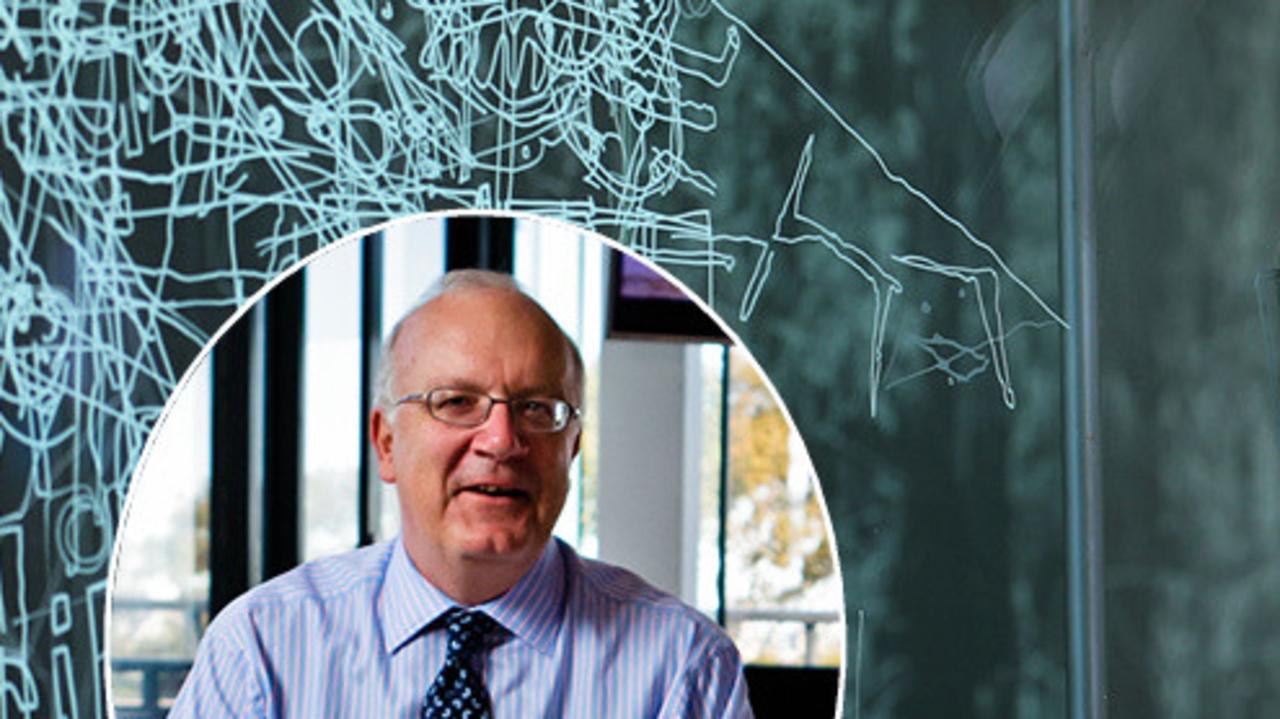Northcape Capital’s Fleur Wright on why it’s still early days in the Gen AI boom
When Northcape Capital’s Fleur Wright first visited Nvidia in 2018 there was no hint of the generative AI boom which erupted later. But she says it’s still early days.

When Northcape Capital’s Fleur Wright first visited Nvidia in Santa Clara, California in 2018 there was no hint of the generative AI boom that erupted in 2023, but it turned out to be her biggest win.
At that stage Nvidia was mainly focused on high-performance chips for gaming and cryptocurrency mining, and its stock was in the penalty box after disappointing earnings and forward guidance. CEO Jensen Huang had just conceded that cryptocurrency mining would probably make “no contributions” to earnings as “the crypto hangover lasted longer than we expected”.
Nvidia dropped 27 per cent early in the September quarter of 2018, before recovering more than half its losses.
But Wright learned an interesting fact during her visit to Nvidia headquarters in late 2018 that boosted her conviction enough to hoover up the stock at the inception of her Global Equities Fund in 2019.
“We were walking into their offices and just waiting for the investor relations to arrive,” she tells The Australian before her appearance at November’s Sohn Hearts & Minds investment conference in Adelaide.

“They had a picture of their new office, which was being built next door and it was like double the size of the current office. So I thought to myself ‘you’re about to double in size’.
“There was a lot of doubt as to maybe they really did get crypto wrong, but ultimately they were also able to convince me of the long-term growth in parallel processing.”
While the trip increased Wright’s conviction in the stock, she was unable to foresee at the time all that was going to happen with generative AI in the year ahead.
“I completely didn’t pick generative AI,” she recalled. “I was kind of really excited by automotive and what that could do, and data centres and cloud (computing) and that excitement.”
The rest is history as Nvidia’s share price rose almost tenfold from early 2023 to mid-2024.
Northcape still has a high-single-digits percentage of its Global Equities Fund invested in Nvidia.
But Wright has the humility to admit that her fund also missed a bit of the upside.
In fact Northcape sold out altogether in early 2023, right before its AI-fuelled profit upgrade on May 25 that year that blew away Wall Street forecasts and put Nvidia on the cusp of a $US1 trillion market capitalisation. It’s now worth about $US3 trillion.
After the release of ChatGPT in November 2022, Nvidia’s share price was surging.
From the start of 2023 it rose as much as 120 per cent before the May 25 upgrade.
But as is often the case with highly valued growth stocks that are yet to realise their full potential, the concern for some investors about Nvidia in early 2023 was valuation.
Nvidia’s stock price was trading on a one-year forward price to earnings ratio of about 60.

But analysts were underestimating the earnings potential and the stock was cheaper than it looked. Over the next 12 months the PE multiple fell from 60 to 35 times even as the share price soared 366 per cent as the earnings growth exploded beyond all expectations.
Fortunately for Northcape, it got back into Nvidia later that year when the stock fell about 22 per cent in September-October. The fund is now back up towards its maximum position of 10 per cent. The stock price rose as much as 258 per cent from October 2023 to June 2024.
Since then it has been extremely volatile, particularly for such a large stock, rising and falling in swings of between 20 and 45 per cent in two to three-week periods.
After the day of its quarterly report on July 28, Nvidia fell 6.4 per cent simply because its profit and sales forecast didn’t beat market expectations by quite as much as usual.
“We were able to get back in and actually it has been a big success story,” Wright says.
“It’ still very volatile, and it’s certainly not a stock that you can sleep easily with, but we are still really excited about the opportunity there. We are really early days.
“ChatGPT was launched in late 2022 so we are like 1995 for the internet … there’s still so much growth out there and Nvidia is a really direct play (on generative AI), which is probably a little bit different to the internet, when you had every man and his dog creating all kind of websites.”
While anticipating that competition in the space will “certainly broaden out”, she says at the moment Nvidia is “really reaping the vast majority of the benefits of that investment in generative AI”.
Wright says her fund uses the volatility to trade around its valuation.
“I do think this is one where you’ve got to play scenarios out in your head or on a spreadsheet, because we’re so early – the options in terms of what this thing could be worth are very varied,” she said.
“But we certainly have a view, and we try to take advantage of the volatility.
“That’s what we tried to do when it hit 60 times earnings, and we couldn’t see generative AI, but that was one that potentially didn’t work out. But nearer term, we’ve been using that volatility to raise or lower our position.

“We have a maximum 10 per cent weight in any stock, so if it performs really well, that forces us – it’s quite a nice thing to pull right that back and then if we can, you know, still think this looks great longer term, then we’re topping up.
“Ridiculously, even though the share price has gone up a lot, earnings have gone up more.
“So it is actually trading at a discount to where it has traded in the past. It is a blunt instrument (PE multiples), so I kind of prefer to look forward, but it’s still expected to grow very strongly in the next couple of years.”
Asked if there was much of a risk that the tech giants were uneconomically “warehousing” Nvidia chips, Wright says “there’s a real risk of an air pocket at some point.
“But what I have heard from Microsoft, Google and Meta (is) that the risk of underinvesting is far greater than the risk of over investing (in Nvidia chips), that they are investing based on the demand that they see,” she added.
“The other thing is, because we’re so early, they’re still only buying A100s and H100s (chips) and Nvidia is capacity-constrained. So for the next few years, you’ve got capacity opening up, you’ve got new products like Blackwell coming out, you’ve got Nvidia expanding into networking and software, which is a bigger part of their business and potentially more resilient through time, and then you’re seeing new customers as well.
“So sovereign AI, which wasn’t there at all before – all these governments are having to invest.
“So yes, at some point it will calm down, but the hyperscalers have only just started. There’s new products that are going to be way more efficient that they will need, governments are adding on, and you’ve got software and networking again, that’s coming through, and then just capacity.
“It’s hot at the moment, it’s really early, we’re capacity-constrained in that, and the new products haven’t come out yet, so there should be good growth for at least a couple of years.”
The 2024 event will explore themes including space, AI, geopolitics, biosciences and investing. All profits will be donated to medical research and 50 per cent of the proceeds from this year’s event will support medical research discoveries at the South Australian Health and
Medical Research Institute. For more information go to sohnheartsandminds.com.au



